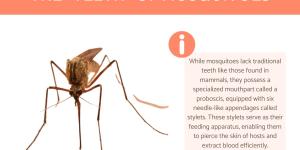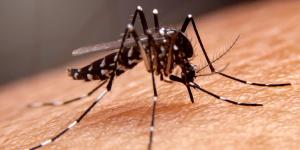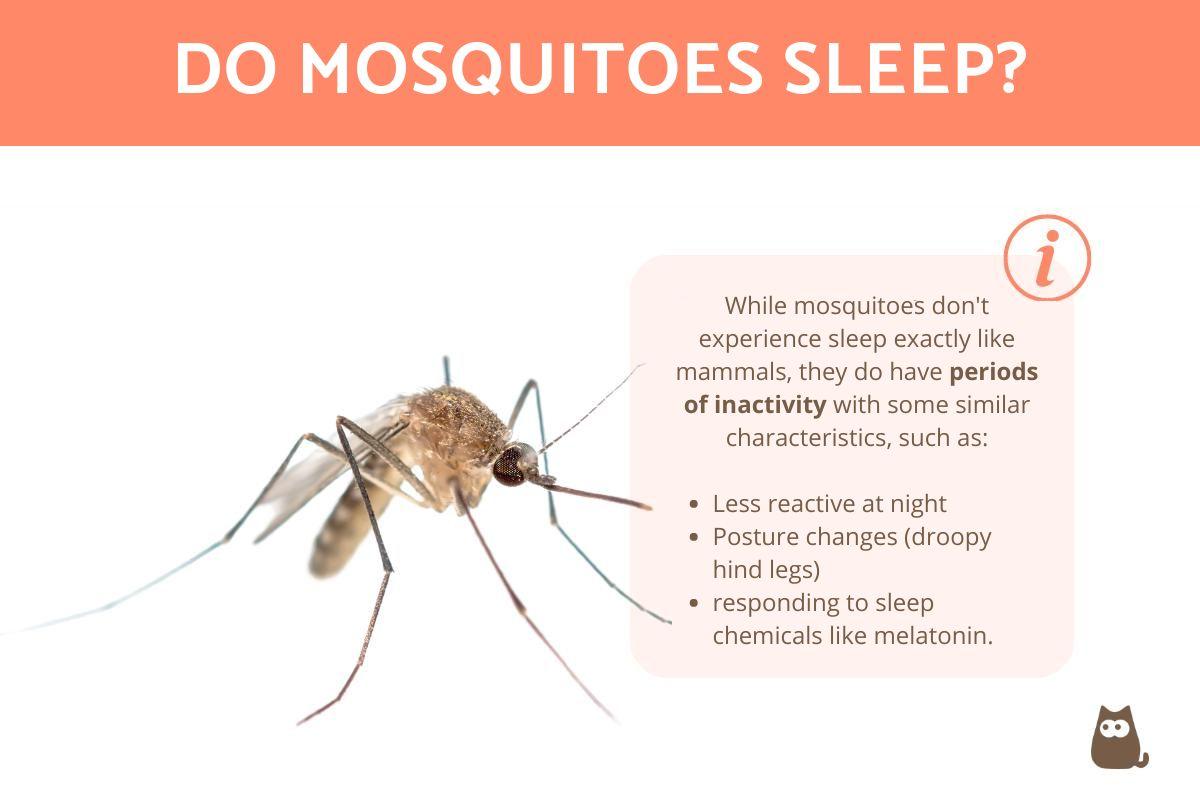Do Mosquitoes Sleep?

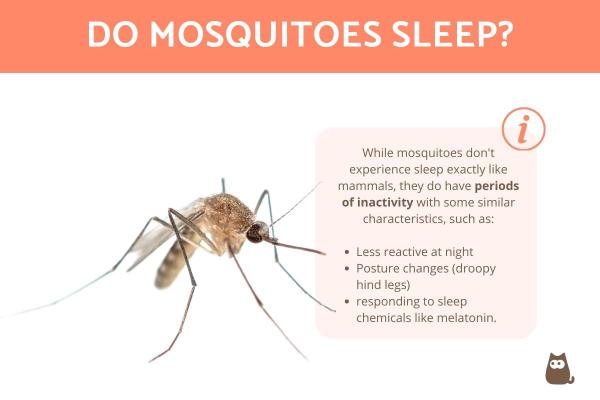
Mosquitoes are some of the most common and widespread insects on Earth. We encounter them flitting around gardens and sneaking into our homes, often associating them with sleepless nights due to their nocturnal activity. However, mosquitoes also exhibit periods of rest. Does this downtime translate to sleep as we know it?
This AnimalWised article explores the question of do mosquitoes sleep?, and if so, where, when and how.
Do mosquitoes sleep?
Several mosquito behaviors hint at a state resembling sleep. Studies have observed that during extended periods of inactivity, mosquitoes become less responsive to external stimuli, mirroring a key characteristic of sleep in mammals. Additionally, exposure to sleep-inducing chemicals like melatonin can induce a sleep-like state in mosquitoes, suggesting some shared physiological mechanisms.
However, significant differences likely exist between mosquito "sleep" and mammalian sleep in terms of both neurobiology and function. Mosquitoes have simpler nervous systems compared to the complex brains of mammals. Moreover, the exact purpose of sleep in mosquitoes remains under investigation. While mammalian sleep plays a vital role in memory consolidation, information processing, and physical restoration, the specific functions of sleep in insects may be entirely different or even completely unknown.
When do mosquitoes sleep?
The timing of mosquito inactivity, analogous to sleep, depends on the specific species and its environment. In this sense, mosquito activity patterns can be quite diverse.
Mosquito activity patterns aren't uniform across all species. Some species are primarily diurnal, seeking cool, dark refuges like crevices, vegetation, or even human-made structures during daylight hours. This behavior contrasts with nocturnal feeders like the Aedes aegypti mosquito, which exhibit a more crepuscular activity pattern, meaning they're most active at dawn and dusk. However, it's important to remember that the mosquito world is diverse, and other species may have entirely different activity peaks throughout the day or night.
Beyond species, environmental conditions such as temperature, humidity, and food availability further influence mosquito activity. Some species may prefer specific feeding times, like dawn or dusk, and spend the rest of the day resting. Others, depending on their environment and food needs, may remain active throughout day and night. After all, it is generally at night, when predator presence is often reduced and potential sleeping hosts are more readily available, they become more active in search of a blood meal.
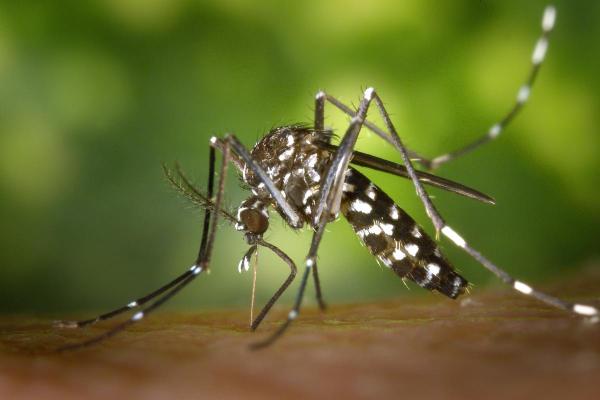
How do mosquitoes sleep?
As mentioned before, mosquitoes don't quite sleep in the same way we do. They lack the complex brains and nervous systems of mammals, and their "sleep" is more like a period of extended inactivity or rest. The exact way mosquito brains manage sleep-like states remains unclear. Their simpler nervous systems likely function differently from mammals during rest.
Mosquitoes exhibit a different sleep pattern compared to mammals. They don't have eyelids or close their eyes; instead, they enter periods of inactivity where their overall activity decreases, akin to rest. Studies suggest that while they don't adopt typical sleeping postures observed in mammals, they may fold their hind legs during these inactive phases. Also, they remain relatively motionless and can slow their metabolism to conserve energy. This state allows them to stay poised for quick activation if they sense threats or potential food sources like sleeping humans.
Curious, right? But what about their decision-making skills? We explore the mosquito mind in another article.
Where do mosquitoes sleep?
Since mosquitoes don't enter a deep sleep state like mammals, they don't necessarily require a specific "bedroom." However, during their periods of inactivity or rest, they actively seek out sheltered locations with specific characteristics.
Mosquitoes prefer dark environments to minimize activity and potentially conserve energy. This is why they're often found in dense foliage, tall grass and vegetation and abandoned burrows of rodents or other animals.
Mosquitoes are vulnerable during their inactive periods, so they seek locations that offer some level of security from predators and environmental disturbances. This can include small openings in rocks, walls, or tree bark. Also, human-made structures such as garages, sheds, attics, and even inside homes.
While not necessarily a requirement for their rest, some mosquito species prefer areas with slightly higher humidity. In this sense, stagnant water sources are ideal.
We all know their bites itch, but do they have teeth? Explore the fascinating world of mosquito anatomy in another article
If you want to read similar articles to Do Mosquitoes Sleep?, we recommend you visit our Facts about the animal kingdom category.
- Ajayi, OM, Eilerts, DF, Bailey, ST, Vinauger, C., & Benoit, JB (2020). Do mosquitoes sleep? Trends in parasitology , 36 (11), 888-897.
- Ajayi, OM, Marlman, JM, Gleitz, LA, Smith, ES, Piller, BD, Krupa, JA, ... & Benoit, JB (2022). Behavioral and postural analyzes establish sleep-like states for mosquitoes that can impact host landing and blood feeding. Journal of Experimental Biology , 225 (11), jeb244032.
- Duffield, G. E. (2024). Circadian and Daily Rhythms of Disease Vector Mosquitoes. Current Opinion in Insect Science , 101179.

